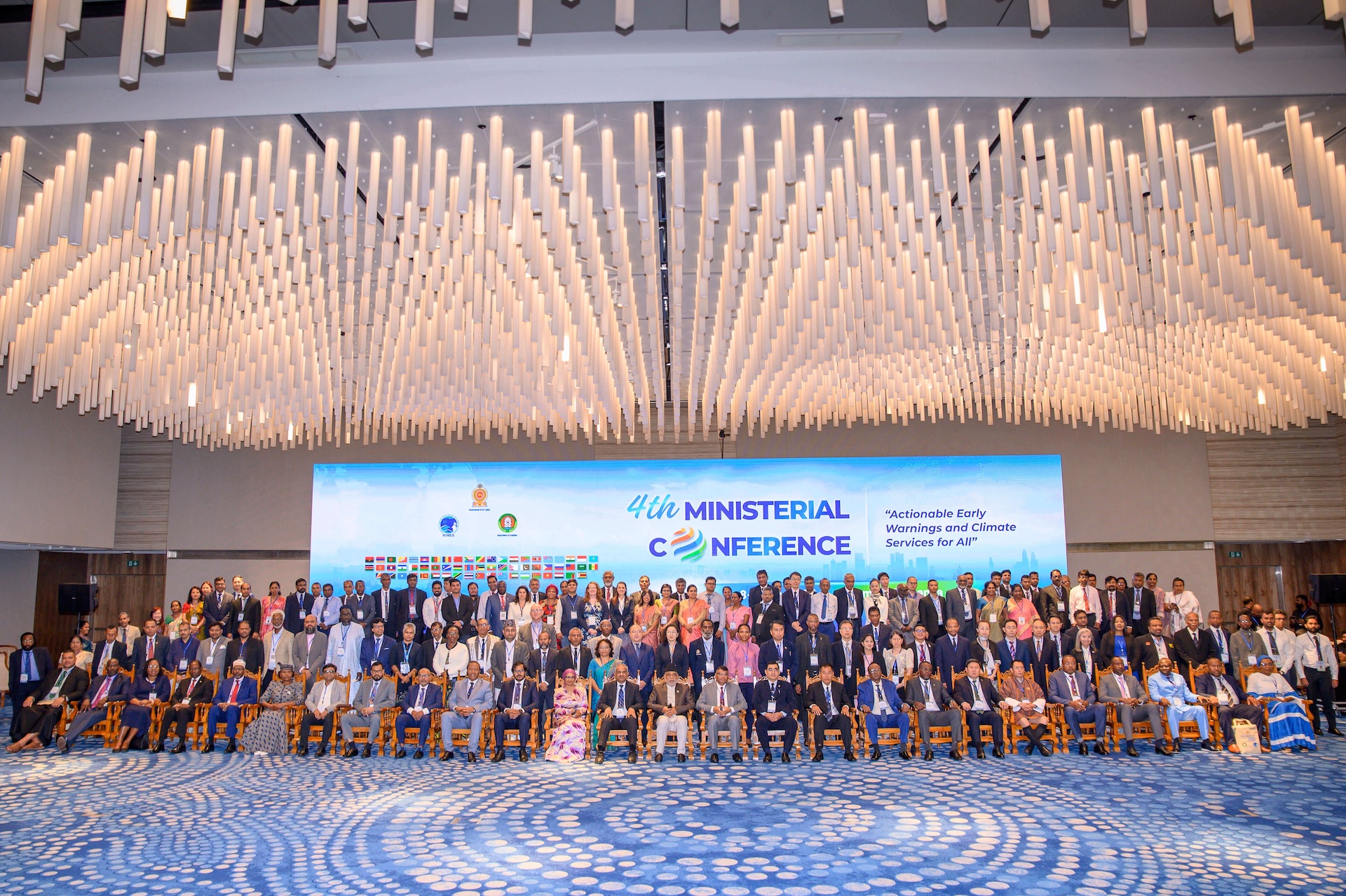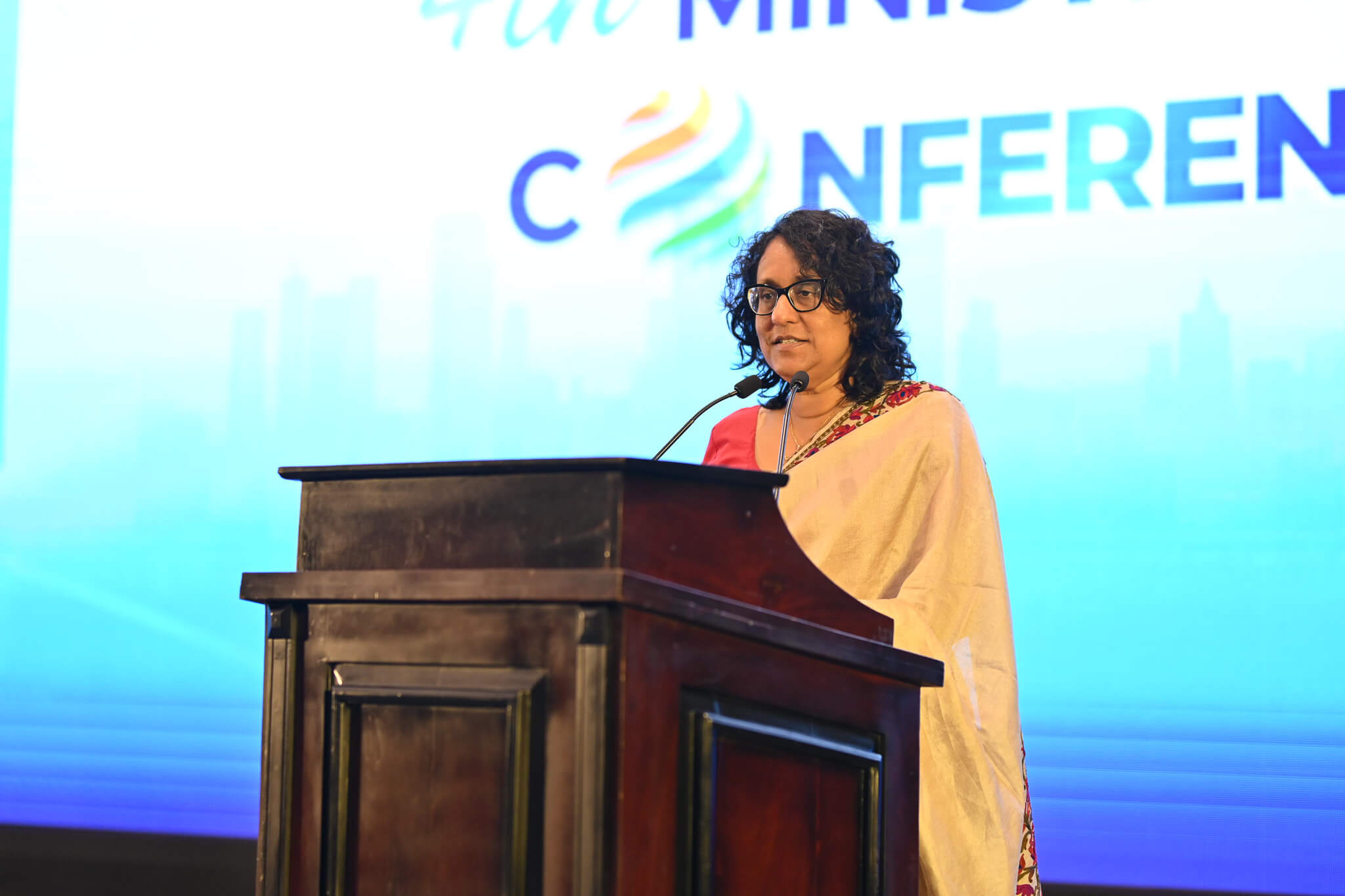RIMES charts its course until 2030 at 4th Ministerial Conference in Colombo
Adoption of the Master Plan 2026-2030 and strengthen regional cooperation for actionable early warnings and climate services

8-9 May 2025 | Colombo, Sri Lanka — The 4th Ministerial Conference of the Regional Integrated Multi-Hazard Early Warning System (RIMES) marks a significant milestone as it sets the strategic course for the institution until 2030 guided by the theme, “Actionable Early Warnings and Climate Services for All”. The Conference is hosted by the Government of Sri Lanka and supported by the World Bank through CARE Component 1 and the Foreign, Commonwealth, and Development Office (FCDO) of the United Kingdom.
Officially opened by Dr. Harini Amarasuriya, Prime Minister of Sri Lanka, the conference gathered high-level representatives from RIMES’s 45 member states and collaborating countries alongside development partners, to call on strengthening regional resilience against escalating climate and disaster risks through the adoption of the RIMES Master Plan 2026-2030.

In her inaugural address, Prime Minister Amarasuriya acknowledged RIMES’ contribution in strengthening the country’s disaster risk management: “RIMES has played a vital role in protecting Sri Lankan society from disaster risks and in supporting sustainable and resilient development.”
Back in 2017, the Ministerial Conference led to the creation of the Data Exchange Platform and country-customized decision support systems. This year, RIMES took a bold step forward—aligning its priorities under a shared Master Plan by drawing early warning/climate information services from RIMES’ Regional Multi-hazard, Multi-scale and Multi-purpose Early Warning and Climate Services System.
Among key outcomes and future directions discussed during the Conference were:
- Adoption of RIMES Master Plan 2026-2030: A five-year strategic roadmap to guide RIMES’s priorities in enhancing regional capabilities for early warning and climate services. Member states expressed strong endorsement, aligning the plan with their respective national disaster risk reduction and climate resilience goals.
- Reinforced Commitment to the “Early Warnings for All” (EW4All) Initiative: A collective commitment to the United Nation’s EW4All Agenda was received, highlighting RIMES’ pivotal role in supporting this global agenda.
- Strengthened Regional and International Cooperation: Through the WMO-RIMES Joint Strategy and Action Plan (JSAP), a key framework for enhancing NMHS capacities and translating them into tangible socio-economic benefits.
- Commitments to advance science, technology, and innovation: Across the climate information and early warning systems value chain to harness RIMES' regional early warning system for reduced losses and broader economic benefits.
- Ministerial Declaration: A high-level commitment from member and collaborating states to implement the RIMES Master Plan 2026-2030 and advance the shared vision for a resilient future.
Over the years, RIMES has become a critical integrating engine between NMHSs, global producing centers, National Tsunami Warning Centers (NTWCs), National Earthquake Centers (NECs), sectoral institutions, and communities—enabling the co-creation and continuous evolution of user-driven, multi-hazard early warning/climate information services. Its work leverages the best of science and technology to ensure that information is not only technically sound but also actionable and relevant for decision-makers at every level.
Two preliminary activities were held that led up to the 4th Ministerial Conference: the 4th session of the South Asia Hydromet Forum (SAHF) Executive Council Meeting, held on May 6th, which endorsed strategic roadmaps and resolutions for strengthening hydromet services and resilience in South Asia amid rising climate risks. Meanwhile, RIMES 17th Council Meeting prioritized actions on RIMES programs in South Asia for deepening and replication to other RIMES Sub-regions and finalized its Institutional Development Plan 2026-2030.
The period from 2025 to 2030 marks a critical window for RIMES’s member states and collaborating countries who face common threats from increasingly variable and intense natural hazards, yet possess diverse capacities. This 4th Ministerial Conference, with the presence of diverse stakeholders underscoring the importance of partnerships, sets the path for RIMES to further strengthen its role as a regional anchor for collaboration—facilitating the transfer of good practices, supporting institutions, and integrating rapidly advancing technologies. #